Search
Did you mean: Epona?
Search Results
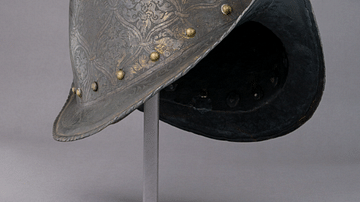
Definition
Conquistador
The conquistadors, meaning "conquerors", were Iberian military adventurers who operated as the vanguard of empires in the 15th and 16th centuries by exploring areas of the world unknown to Europeans, defeating indigenous armies, and then...

Definition
Pandavas
Pandavas were the five powerful and skilled sons of Pandu, the King of Hastinapur and his two wives Kunti and Madri. Hastinapur is equated with the current modern Indian state of Haryana, south of New Delhi. The Pandavas – Yudhistira, Bhima...
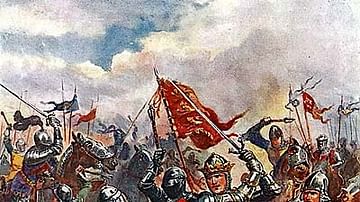
Definition
Battle of Agincourt
The Battle of Agincourt on 25 October 1415 saw Henry V of England (r. 1413-1422) defeat an overwhelmingly larger French army during the Hundred Year's War (1337-1453). The English won thanks to the superior longbow, field position, and discipline...

Definition
Roman Siege Warfare
In ancient warfare open battles were the preferred mode of meeting the enemy, but sometimes, when defenders took a stand within their well-fortified city or military camp, siege warfare became a necessity, despite its high expense in money...

Definition
Carthaginian Army
The armies of Carthage permitted the city to forge the most powerful empire in the western Mediterranean from the 6th to 3rd centuries BCE. Although by tradition a seafaring nation with a powerful navy, Carthage, by necessity, had to employ...

Definition
Tiglath Pileser III
Tiglath Pileser III (745-727 BCE) was among the most powerful kings of the Neo-Assyrian Empire and, according to many scholars, the founder of the empire (as opposed to the claims for Adad Nirari II (912-891 BCE) or Ashurnasirpal II (884-859...

Definition
Desert Rats - British Eighth Army's Elite Desert Troops
The Desert Rats was the nickname of the 7th Armoured Division of the British Eighth Army, which first fought in North Africa during the Second World War (1939-45). Fighting in the Western Desert Campaigns and the North Africa Campaign, the...
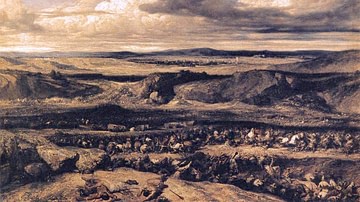
Definition
Cimbri
The Cimbri were a tribe who lived in northern Jutland during the Roman era. Their ethnicity is enigmatic; scholars generally believe that the Cimbri were Germans, though others maintain that they were Celts. The late 2nd-century BCE migration...
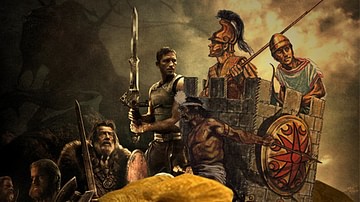
Definition
Carthaginian Warfare
Carthaginian warfare has been overshadowed by defeat to Rome in the Punic Wars, but for six centuries before that Carthage was remarkably successful in conquering lucrative territories in North Africa, the Iberian Peninsula, and Sicily. By...
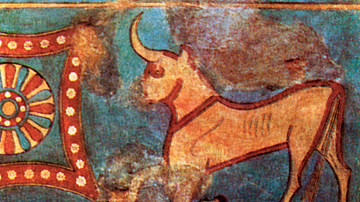
Definition
Urartu Art
The art produced by the Urartu civilization, which flourished in ancient Armenia, eastern Turkey, and northwestern Iran from the 9th to 6th century BCE, is best seen in bronze figurines of deities, bronze cauldrons with animal and goddess...